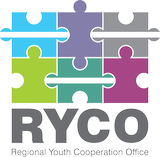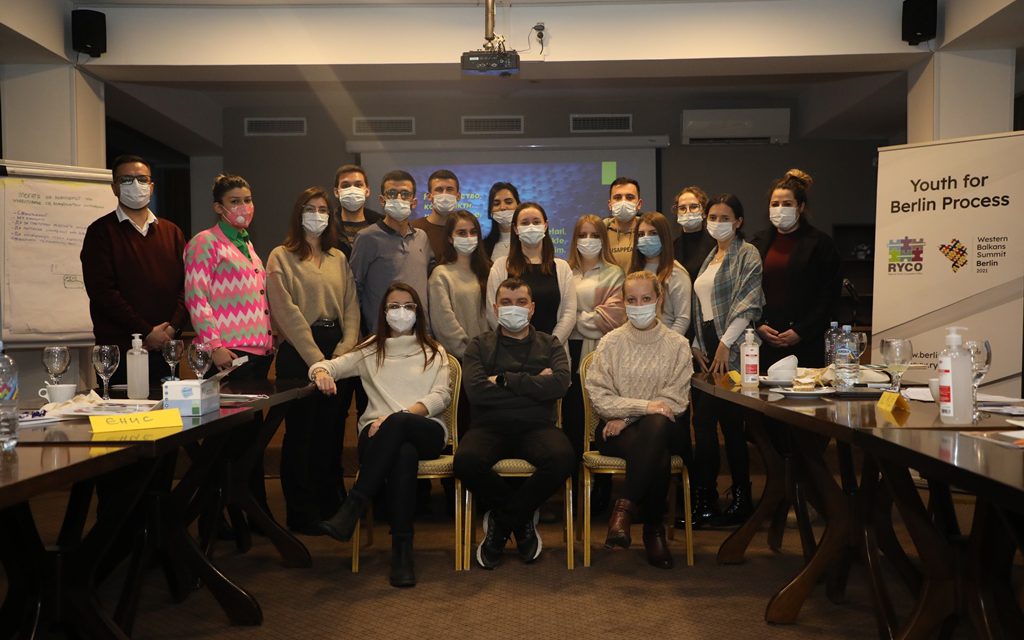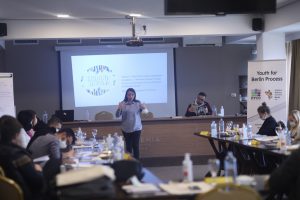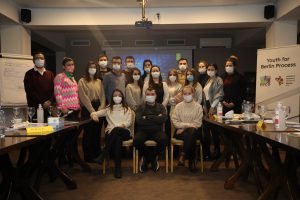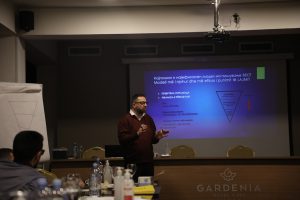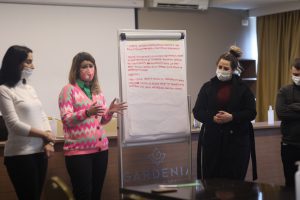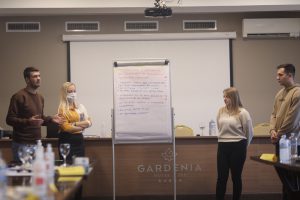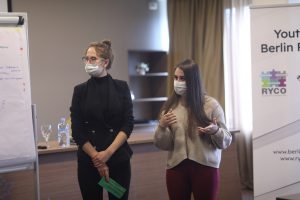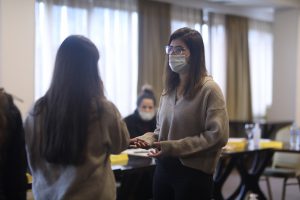VELES – The RYCO Local Branch Office in North Macedonia organized three-day training for young journalists in the field of intercultural dialogue and transitional journalism. The training which took place in Veles on 11 – 13 December, gathered students of journalism and journalists working in different types of media.
Given that journalists are integral part of promoting sustainable and inclusive peace in transitional multicultural societies, this training was of a high importance to enhance the capacities of journalists to create quality media content when reporting on socially sensitive topics. The training consisted of 4 modules covering the role of journalists in transitional societies, the connection between human rights and the media, reporting from conflict areas and choosing the right angle and wording when reporting about sensitive issues.
In the first part of the training, RYCO Local Program Officer Ms Tanja Paneva introduced the training agenda and presented the introductory activity. The first activity was related to different perceptions and interpretations of the pictures and the reality around us. Once again, the role of the journalist to display all of the segments of a given case or event was emphasized. Finally, the work and the current projects of RYCO were promoted.
The experienced facilitators at the event, Ms Jordanka Galeva, PhD, Assistant Professor and Mr Mefail Ismaili, well-skilled journalist, both with extensive knowledge in the field, continued the training with underlining the importance of journalists in easing conflicts, with even getting the function of mediators in times when they can balance between two sides in a dispute and not letting the conflict to escalate.
Furthermore, Ms Galeva presented the theories of human rights and documents that show how human rights should be protected in different cases of media coverage. In addition, she and the group discussed solutions to conflicts within different regions with the conclusion that solutions should be designed for each separate case individually according to its unique features.
The presentation of Mr Ismaili depicted the importance of the angle and the wording in the news, especially when reporting on socially sensitive topics. Together with the group, different cases and practical experiences were discussed with the conclusion that journalists should be very well equipped with knowledge in the topic in aim to produce unbiased news and to have good cooperation with institutions and all parties involved in a given story. It was also concluded that safety of media teams should also be ensured when reporting from sensitive and conflict areas.
Throughout the training, participants were actively involved in the activities with expressed enthusiasm to continue with the second part of the training, online mentoring sessions with the goal to create media products in the field of intercultural dialogue, promotion of tolerance and reconciliation.


